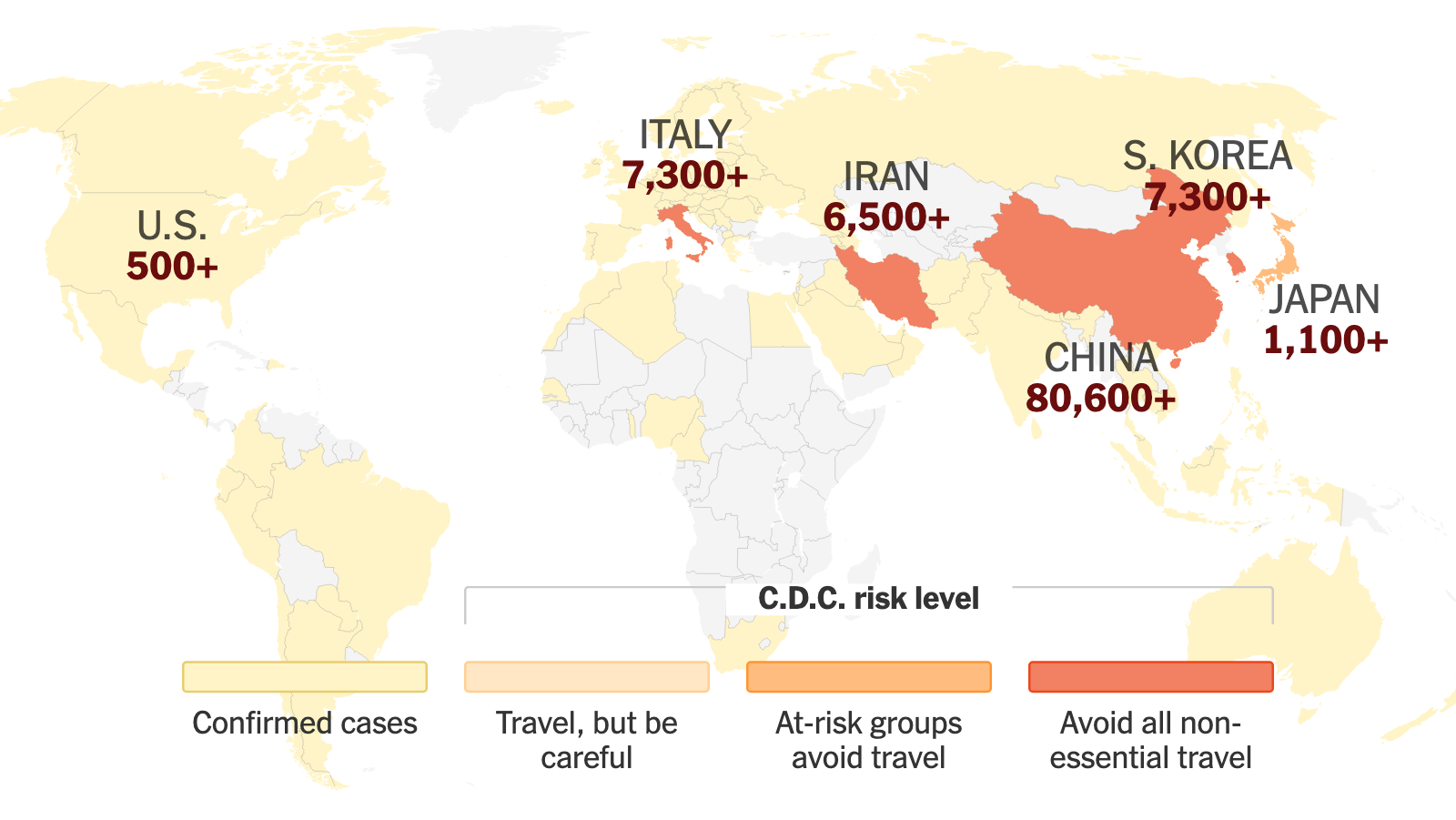A study showed that 10% of the world believes that the coronavirus comes from the beer brand Corona. Hopefully, you are more informed about the virus than these people! As the number of coronavirus cases reaches 100,000 worldwide, the fear of this virus is rising significantly and many myths have been presented. In this article, we will try to clear up the confusion about this deadly virus and present some important facts to be aware of. Some questions that most people should be able to answer include: which countries is it affecting the most? How do you try to prevent yourself from getting it? How severe is the virus, and how worried should I be? Finally, what are some symptoms to look out for?
The coronavirus, also known as COVID-19, is still very new to the world, but it is rapidly becoming a worldwide pandemic. Originating in Wuhan, China, the virus’s explanation is still questioned, although there are multiple theories including that it was spread from Pangolins, a scaly anteater. COVID-19 is spread from person to person between people that are very close together. Additionally, it is possible to get the virus from touching a surface with it on it and then touching your mouth and nose. The coronavirus is most prevalent in China (80,000 cases), Iran (4,700 cases), Italy (3,800 cases), and South Korea (6,500 cases). America has seen around 200 cases, with 14 deaths. Also, there have only been three confirmed cases in Massachusetts.
How does one prevent themselves from getting the coronavirus? There are many ways, including staying away from sick people, disinfecting objects and surfaces, avoiding touching your face, and washing your hands constantly. And, obviously, avoid traveling to the areas with high amounts of the virus. The idea of wearing a mask to prevent the virus is false! Most surgical masks aren’t tight enough to prevent inhalation, so unless you’re already infected with COVID-19, wearing a mask is unnecessary. These everyday habits can significantly reduce your chances of becoming infected with the coronavirus.
Some symptoms to look out for include a fever, a cough, and shortness of breath. These symptoms can also go along with the flu or a regular cold, so it’s easy to be worried even if you don’t have the virus. Now, how worried should you be about the coronavirus? You shouldn’t be that worried! Many cases can be extremely mild, and it’s expected to kill fewer people than the flu. Data suggests that if you have the coronavirus, you’re more likely to show no symptoms than to require hospitalization. Also, COVID-19 is thought to be more deadly for people with weaker immune systems; people over 70, young children, and people with preexisting health conditions.
In conclusion, there are many common symptoms for coronavirus, but that does not necessarily mean you have it. A small cough during this time of year could just be a minor cold, but it doesn’t hurt to check in with your doctor. Avoid contact with sick individuals, and be cautious around potentially infected people. In general, the best thing that you can do is wash your hands incessantly and disinfect items and surfaces often. Finally, know that America is providing resources to attempt to help the pandemic, and we can be hopeful that they will obtain control of the coronavirus soon.

